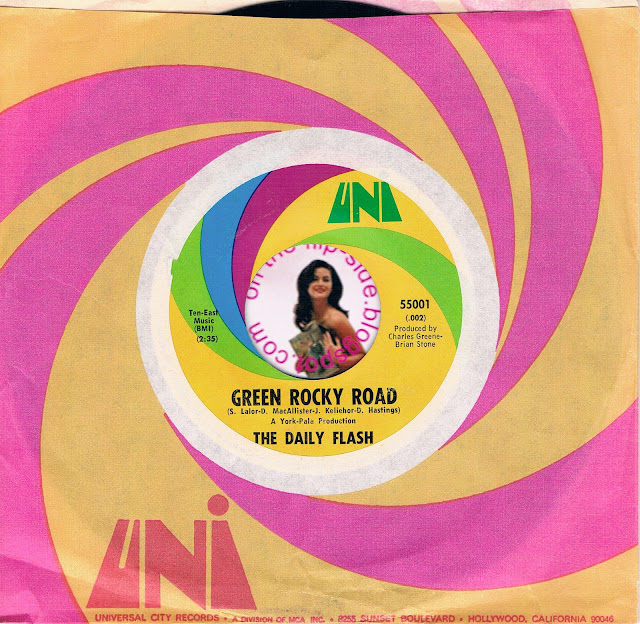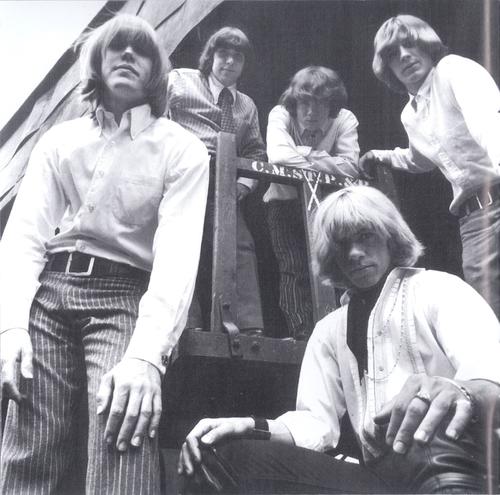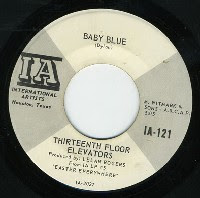Picking up a guitar lick here or referencing a lyrical phrase there is as old as music itself. Heck, rock-n-roll itself was born out of a fusion of country and blues -- essentially borrowing from two music styles to create one anew. But somewhere there is an invisible line that a musician may cross which takes him from referencing or borrowing to flat out plagiarizing. It's that line that we explore today -- and will occasionally revisit over the coming weeks, months and years -- in an ongoing series exploring the musical roots of Led Zeppelin's songs.
Perhaps more than any other major rock act, Led Zeppelin blurred the line dividing a reference and flat out plagiarism, often claiming credit for entire songs, guitar riffs, lyrics, and even imitating vocal styles. And it wasn’t just old blues numbers that were themselves cops on earlier blues songs, as many apologists contend. The stunningly talented Jimmy Page was heavily influenced by folk music and often found “inspiration” in traditional Renaissance era folk songs which ended up with his writing credit. Perhaps most surprising, however, is the fact that Led Zeppelin also lifted from their contemporaries, as we will explore in today's post.
These postings will trace the etymology of many of Led Zeppelin’s most famous songs. In some instances the derivation was only an innocent and totally above-board musical or lyrical reference. For example, the opening percussion machine gun attack on Rock-n-Roll. I’ve included these not to indict Led Zeppelin but rather to chronicle the references for sake of interest. Other instances, such as today's posting, are less innocent and are noted as such. These postings are by no means comprehensive and I welcome your additions and corrections or flat out arguments against my subjective musings. My hope is that, at the very least, the listener (particularly Zep heads) will put down their defenses and prejudices and allow themselves to be exposed to some great and rare music which they may not have otherwise had the opportunity to hear. Ironic, isn’t it? Who would have heard of Kansas Joe if it weren’t for Jimmy Page and Robert Plant?
~~~~
Now on to today's posting and certainly one of the three most recognizable "
Led Zeppelin songs" ever.
The song is from Led Zeppelin I and is called Dazed and Confused. Here’s how
Dazed and Confused came to be known as one of
Jimmy Page’s greatest songs he never wrote.
On August 25, 1967, The Yardbirds (of which Page was now a member) performed at the Village Theater in New York. A little known folkie named Jake Holmes was touring in support of his 2 month old album, The Above Ground Sound of Jake Holmes on Tower Records, and was the first act on that bill. The Yardbirds' drummer, Jim McCarty was the only member of the Yardbirds to catch the act that night. According to McCarty, he purchased Holmes' new record the next morning at the House of Oldies Record Store in Greenwich Village and suggested to his bandmates that they cover Holmes' Dazed and Confused (1967 ASCAP copyright, 340119544). The Yardbirds collectively did a slight arrangement change for the song -- adding a middle bridge and Keith Relf rewriting some of the lyrics -- and the song became a staple of the Yardbirds' set in their waning days. They performed it on their never released Yardbirds Live at the Anderson Theatre album, on the BBC and on a French TV show called La Bouton Rouge (see video below).
According to Jake Holmes' he had no idea that the Yardbirds had been covering his song and learned about the Led Zeppelin version only when it appeared on wax with the writing credit going singularly to Jimmy Page (ASCAP copyright, 1968 340128276). Holmes: "Yes, yes, and that was the infamous moment of my life when Dazed and Confused fell into the loving hands of Jimmy Page." (source: Greg Russo. Yardbirds: The Ultimate Rave-up). Jimmy Page was pressed on this matter sometime in the 70's and then claimed that he never knew of Holmes' version and that the deceased Yardbirds singer Keith Relf had claimed to have written the song and gave Page permission to claim it as his own. McCarty: "He's [Page] a fibber. We'll have to bust him on that one." (ibid)
Rumors have swirled for years that
Jake Holmes was quietly compensated many years later by
Page's Swan Song Publishing as they fended off legal action. Neither
Holmes or
Page have, to my knowledge, spoken publicly about the matter since. Rumors have also swirled for years that
Jimmy Page and
Atlantic Records purchased the rights to
The Yardbirds Live At Anderson Theatre album and had it withdrawn from publishing. Ostensibly to suppress the earlier version of
Dazed and Confused which credits
Holmes and thus would prove
Page's knowledge of the song's origination.
Things haven't been all bad for Jake Holmes. He went on to be one of the most successful advertising jingle writers in America, penning such tunes such as Be a Pepper, Alka Seltzer's Plop, Plop Fizz, Fizz and the Army’s Be All You Can Be.
So sit back and listen to the original recording of Dazed and Confused by Jake Holmes and then listen to Led Zeppelin's "original", Dazed and Confused. And watch the video below to see the intermediary version of Dazed and Confused as performed by The Yardbirds.
Enjoy and keep an eye and ear out for more submissions on the etymology of Led Zeppelin songs in the coming weeks and months and years.
Until next time, we'll see you on the flip-side.































